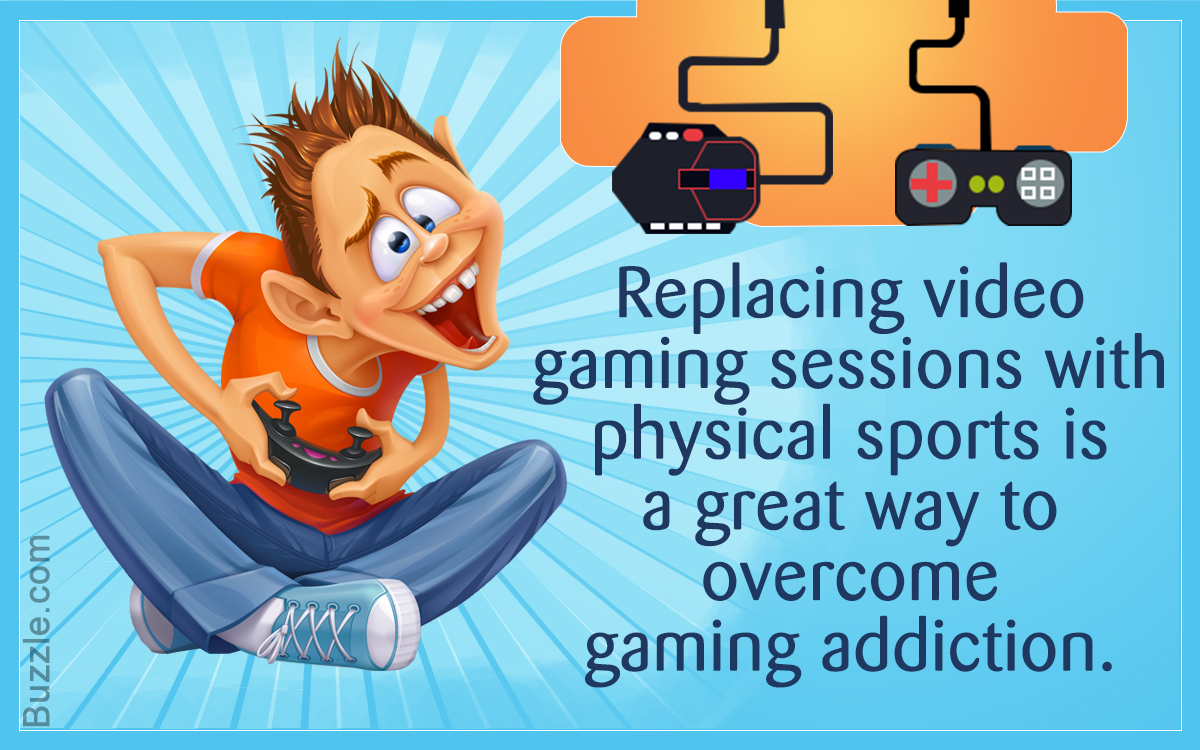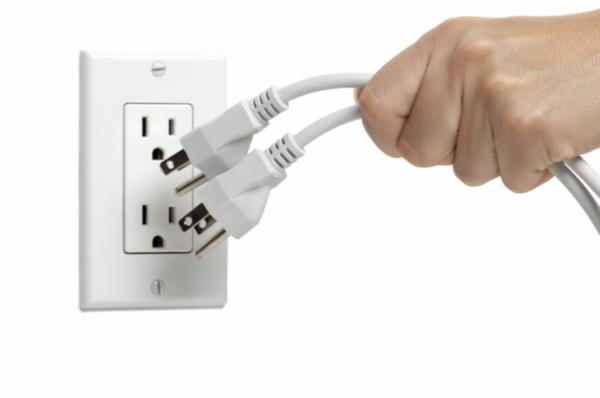
The phrase ‘when push comes to shove…’ doesn’t mean much to a gamer. To them, anything that involves an activity outside the console or PC, single-player or MMO realms, feels like a waste of time. The more you ignore it, the more serious your predicament becomes. So what exactly keeps people hooked to the games they play and what can be done to get them off?
We are now decades into the age of technology, so much so, that most kids born in the ’90s won’t know how to survive without all their gadgets. This attachment becomes even stronger with the computer. It is the sole source that one needs, to be entertained, while still being in touch with global events. For most, this feeling of dependence is hardly anything to be worried about; a game is something that one tends to play on a rainy day or after finishing daily chores and activities. But for some, it becomes more. More than moving things on a screen. More than looking for satisfaction after an hour of playing.
Curbing the Addiction
The root of getting rid of an addiction lies in diverting attention from the addictive object towards things more positive and important. For that, I’ve divided the following into two categories, the casual and the hardcore gamer.
Precautions for the Casual Gamer
It really isn’t a bad thing to be a gamer, it’s just bad when you’re a gamer with nothing else going on in your life. To keep things in check, here are some things that you can do.
⦿ Keep a check on the time you put into gaming. Keep the sessions scattered so that they don’t push other things off too much. The moment you realize that you left some work untouched because you were on the console for too long, stop and do the neglected work.
⦿ Remind yourself that gaming is just a form of recreation and should be treated as nothing more. You have no responsibilities inside the game; never treat the game like you would treat a chore or a project. You can avenge the loss of your teammate or demand a rematch after facing bitter defeat only if it falls within the allotted time. If it doesn’t, take a rain check.
⦿ Form a habit of noticing physical and mental changes in you before and after each session. No fatigue with an overall good mood is great. Excess time allotted to gaming will result in a sense of being drained physically and can make you slightly moody or cranky. If you feel the change, stop and do something else.
Hardcore Gaming: Kicking the Habit
I didn’t mention MMOs above because they are rarely related to the casual gamer. They are designed to make you grind for hours and days; whether it’s for the next level, gear or in-game currency. I’ve been playingWorld of Warcraft for 6 years now and I can tell you that it’s just not possible to be devoted to the game and real life equally. One of them has to be the smaller of the two. Even in the case of single-player games, I can play them without moving anything more than my hands and eyes for at least 12 hours at a go.
None of the methods mentioned for the casual player will work. I assume that if you’re reading this, you have already realized that you’re spending way too much time gaming and want out, but are unable to do so. This is another reason why gaming is called an addiction: once in, it’s difficult to get out. With understanding and accepting that you have a problem as the first step, you can now move on to the second one. It’s pointless if you can’t figure this out, but once you do, you will know what to do. It is rather obvious and yet incomprehensible, but it is something that must be done. I have no other words that are strong enough to get you to quit immediately. I can only hope it rings some alarm bells in your mind.
Pull the Plug. Yes, it is the final step, the extreme measure, the last straw. But if you want to let go of the game, you must let go all at once. There is no ‘I will reduce my time per session every time I play’ or ‘I will do more stuff with my friends so I will forget about it’. If you try these and still find yourself staring at the screen, hacking away at enemies, you will only develop the habit of procrastination. The solution sounds dry and negative, but I believe it’s the only way out. Going cold turkey is the only cure. And don’t try anything like ‘I will stop right after I get that rare mount/epic weapon/level cap/stack of gold’. Your intentions may be to leave the game as ‘finished’ in your mind, but there is no such thing.
MMOs can be bad because they have no ‘end point’. Single-player games can be just as bad because of the heightened euphoria you get in short playing times (relative to MMOs). You can pick up title after title and play them all, but you’ll never be done with all of them without major compromises on your health and lifestyle. Changing the genre doesn’t help either. I mean, no one who’s played StarCraft and Mass Effect will ever be as entertained with titles like Flow or Peggle. Neutral games like Guitar Hero or positive games like Flow represent a whole other spectrum of engaging the player, so they won’t seem as great as the ones you’ve played before.
The reason I kept a separate section for hardcore gaming is that a hardcore gamer usually realizes that he is addicted to it. I can still be proud of the stuff I’ve done inside the game. Add to that a couple of friends who play the same games, gaming cafes and a steady income, and I am left with no time for society or any other hobbies. Even if one plays for 3-4 hours after a hard day’s work, it can still be called an addiction. You may lose sleep, friends, and in some extreme cases even your job.
Losing friends or partners doesn’t happen in all the cases, but when it does, it’s often uncontrolled. You’re blissfully stuck in the loop of clearing levels while the social circles you used to be in or where you can fit in, move on. Once that happens, you get the feeling of being alienated without realizing why. It just ends up creating a constant push, keeping you away from society. The excuse for not fitting in, in society is invalid today. Even if you can’t find a circle where you fit in, there’s always another. Even online forums can be a positive influence as they help you look more into the things that you’re interested in. You must accept that group psychology exists, and that it can be taken as a good thing because it means there is always a place for someone somewhere.
Now I’ll tell you why it’s the best solution.
⦿ Unlike alcohol or drug abuse, gaming doesn’t directly affect the body. It deprives you of physical activity, regular intake of food and water, while keeping you immersed in a tedious, repetitive structure. The same goes for the withdrawal symptoms. They are not as harsh as alcohol withdrawal. In fact, a week or so into zero-game time and you will feel a little positive. Yes, you will be depressed when you abruptly doing something that made you happy. But just give it some time and remember why you’re doing it. Never lose sight of that reason.
⦿ The other plus point is the state you are put in when you stop playing altogether. It’s like a massive week-long hangover. I’m not telling you to jog in the park or hit the club. Most hardcore gamers tend to be socially awkward or feel rejected (that’s why they play) and so telling one to turn off the screen and dive head-first into society is bad. It’s a relapse waiting to happen. What you can do is, be with the people who are close to you. Even if you were out of reach while you were into gaming, it’s still alright to contact them again. It’s the same rule for everybody: the deeper you are into something, the stronger you need to be to get out. The best place that strength is going to come from is your own will to quit.
⦿ Consider it the final achievement you unlock: getting rid of the habit. Heck, it’s one strong kick to say ‘no’, it lets you release the pent up rage and frustration over all the lag and the unsaved progress lost to game bugs. The other side would be when you let go of gaming gradually instead of at once, you may lose the sense of just how into it you were. You could think, ‘maybe it wasn’t that bad’ and start all over again. You don’t want that to happen. Going cold turkey also ensures you won’t be inclined to play Flash games because they just won’t be as good as the ones you used to play.
Why Gaming is an ‘Addiction’
The following is a reference for anyone who is looking to get their friend, family or loved one out of the habit. It is a tricky situation and needs to be handled neatly. To do that, you need to look inside the gamers’ minds. Just telling them it’s bad is not the solution.
In the debate over whether gaming is a real addiction or not, I opine that it is. But it cannot be looked at in the same light as other addictions. It’s just not the same as alcohol addiction or drug abuse. But I believe it can be just as detrimental to one’s social life. It’s even bad for your health if you are a hardcore gamer. Gaming addicts will still display the classic signs of being addicted (such as the euphoria of gaming, withdrawal symptoms and neglecting social life), will get a similar sense of being ‘rewarded’ by playing extensively, all the while being completely oblivious to their surroundings.
How One Becomes Addicted
It usually starts off slow and steady, but eventually grows and starts consuming vast amounts of time. Since the increase in playing time can be gradual, it becomes even more difficult to realize that one is getting addicted.
⦿ One reason is the psychological and emotional state of the person. Problems like anxiety disorders, high levels of stress or even serious conditions like bipolar disorder and schizophrenia will affect the cause and time played, for gaming. Someone suffering from anxiety disorders can look to gaming as an alternate reality, free of real life responsibilities. It doesn’t mean that only a mentally unstable person can become an addict. It can happen to anyone, anytime. From personal experience, I can tell you that gaming is an enabler that helps to relax, away from daily, stressful life. Gaming, IMO is the ultimate form of escapism. It is far easier to obtain than alcohol or drugs, exposing teens to its ill effects. It entertains both visual and aural senses and involves a sense of achievement through a constant effort taken to improve hand-eye coordination and in-game tactics.
⦿ Don’t get me wrong; gaming can be amazing if you look at it the right way. A few hours spared occasionally can improve your motor skills, enable a shy person to be more expressive in online realms and reinforce a positive attitude about real life with a slight boost in confidence. But as with any other thing, too much of it is still bad. Spending hour after hour to get an elusive in-game item or stacking up on frags to reach a higher level will set other things back by just that long. So, as with any addiction, the problem starts when one loses control.
⦿ The bigger agent that encourages the problem is the industry itself. It is an entertainment industry, and therefore will do whatever it can to get people hooked to it. In a general sense, addiction implies profit. Of course, the matter is much too deep for one article to encompass. And it doesn’t even help to blame the industry or the game directly for the loss of one’s time. I’d say both the gamer and the game are to be blamed equally, yet reality puts the gamer in hot water with the game being claimed as a mere mode of entertainment. Therefore, it is still up to the gamer to release himself from the problem.
⦿ A final point I’d like to elaborate on is the hope of becoming a professional gamer. If someone wants to be a professional gamer, they can be glad they are living in this decade where we have game-cons and major competitions all around the globe. It’s not just the WCG anymore; there are tons of monthly and annual events that play host to the best in the game, viewed by a global audience. What I’m focusing on, is a person’s ability to distinguish between heavy doses of gaming and going pro. There is a definite boundary here because becoming a professional gamer marks is a whole new area. As a gamer, one needs to assess just how good their potential is to actually become a pro and not just play at home all day dreaming about it. Instead, you can look into things like choosing your genre, finding sponsors, joining teams, being better than the competition. This is recommended because it puts things in perspective for the gamers, helps them to understand if this is a waste of time or not. My motto stays the same: don’t stay stagnated. If you describe yourself as a great gamer, prove it by actually competing rather than being holed up at home and yelling in-game at people you don’t even know.
Aside from all this, I challenge the way people may explain gaming as an addiction. A majority of us who have delved deep into it have had hard lives; whether it’s bullying, parental issues, peer pressure or social aversion, it just drives us into a world that can make it all go away. But the way media and parents depict the problem is much darker than it actually is. Incidents of violence by people who shift the blame on to games for their actions (and the media and parents gladly agree) is pure hogwash. Kids who do play video games for too long often get labeled into the same group as the violent ones, which is unfair. Yes, gaming may warp reality for someone, but it has just as much to do with their connection to gaming as their disconnection from the real world. It is wrong, however, to use these arguments as an excuse to keep playing and miss out on something important. Which is why I urge those who think they can lead a better life to face the music and fight for it.
I have left my addiction behind, choosing instead to believe that games are the training ground for the real game that is life. That’s my theory, you can pick the one that suits you. Whatever you do, the bottom line stays the same: if there are things that you feel you must do but can’t because you’re gaming, you need to stop. And the only way to do that is to force yourself to take complete control over yourself. Understand that the negativity in the article only emphasizes the fact that if you think you’re addicted and can’t stop but want to, then you just have to hit the kill switch.





